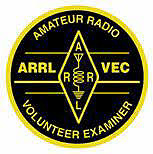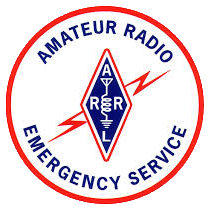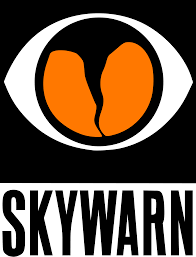“Go Kits”, sometimes called “Jump Kits”, "Go Bags" or “Deployment Bags” are intended to allow us to cope with and/or respond to emergencies. There really is no set rule for what these should contain, but there are some common elements virtually everyone agrees on. Your own set of skills, likely deployments, thoughts on emergency response, and past experience will dictate what your own kit may contain.
The “Everyday” bag is a simple personal emergency kit designed primarily for “minor” incidents or inconveniences occurring while on the way to and from work or about town.
The “24 Hour” kit is designed for actual short-term deployments. This would usually be a local severe-weather incident or assignment to a shelter or other location outside the actual disaster area (such as the hurricane Gustav deployment)..
The “72 Hour” kit is intended for a longer deployment to a local emergency or for an non-local deployment during a larger emergency.
The Everyday Bag
The "everyday" kit is designed to stay within easy reach. It should include a dual-band HT, and weigh less than 5 pounds, and small enough to fit in a small waist bag or hand-carried canvas bag. Many feel the need to expand this so much that they go to the 24-hour bag as the one they carry with them. Here are some of the items to consider for inclusion:
-
2-meter or Dual-band HT.
-
Driver’s License and a copy of your current FCC Operating License.
-
Replacement for the typical HT "rubber duck", improving performance by 3 db).
-
Extra high-capacity (1000+ mah), or backup AA battery case for HT.
-
DC adapter & fused power cord for HT. A car adaptor should be considered.
-
Extra fuses for HT chagrining/power sources.
-
Speaker mike
-
Swiss Army pocket knife or Leatherman multi-purpose tool
-
Mini-Mag-Lite, extra bulb and spare AAs
-
Pencil and pocket notepad
-
Emergency gas / phone money ($10 bill, + six quarters and six dimes in pill box).
-
SO-239 to male-BNC adapter to fit HT to mobile antenna coax and female BNC to SO-239 to fit HT gain antenna to jumper.
-
6 ft. RG8-X jumper with soldered PL-259s, plus suction cups or car window clip.
-
Spare eye-glasses (preferably with safety lenses) of current prescription.
-
Band aids, moist towelettes and sunscreen
-
Pocket sewing kit
-
Small pocket compass
-
Operating reference card for HT
-
Emergency phone and frequency list
-
Bagged wash cloth / paper towel / towelettes.
-
Energy Bar / Crackers (change out periodically)
-
Basic First-Aid kit. (those with medical training would want to carry more)
-
Wrench to turn off gas or water.
-
Gloves
-
Goggles
-
Survival knife (usually has compass, sewing kit, etc. built in)
The 24-hour Deployment Kit
The "24-hour" kit is designed for use during initial deployment and/or a known short-term deployment. This would normally be contained in a sturdy shoulder bag with carrying strap or small backpack. Suggested contents include items from the “Everyday” bag and:
-
Documents (in binder): Forms (ICS, ARRL, EMCOMM) and protocols for. This may include:
-
Net Scripts
-
SKYWARN protocol
-
Expanded frequency list of repeaters, VHF simplex, and HF frequencies.
-
ARRL Radiogram
-
ICS Form 213 (message form) & ARRL consolidated Radiogram/ICS 213
-
Maps
-
-
Second, "backup / loaner" 2-meter or dual band HT. (ideally with the same accessories and compatible with the primary radio)
-
Extra 10' AWG 10 gage twin lead extension cord, with battery clips, in-line fuses and Molex connectors to power brick amp or HT.
-
Compact, but rugged, 25-40w 2 meter or dual-band brick amplifier for the HT.
-
2-meter or dual-band Mobile or Mobile/Base radio for use in vehicle.
-
Gain antennas for both HTs.
-
Cell phone charger & spare battery.
-
Gel cell batteries, sufficient to power small brick amp at 25w + 25 percent duty cycle for 12 hrs. (minimum, four NP2-12 or equivalent) .
-
Two refills of AA Alkaline batteries for HT.
-
Cable ties, large and small, 6 each
-
Spare pencils/pens and permanent marker.
-
Quick-reference card(s) listing primary and secondary repeaters, local wide-area coverage or cross-linked repeaters, SKYWARN and ARES / RACES working frequencies.
-
Personal hygiene items including toothbrush and toothpaste, toilet paper, tissue, liquid soap, change of clothes, tissues, antacid, etc.
-
Sunglasses & cap or hat.
-
Spare seasonal clothing (sweater, gloves, jacket, coat, etc.).
-
Matches or lighter
-
Additional energy bars, crackers, snack foods, etc.
-
Prescription drugs
-
Insect repellent & sun block.
-
Bagged wash cloth / paper towel / towelettes.
-
Energy Bar / Crackers (change out periodically)
-
First-Aid kit that includes tweezers, antiseptic wipes, larger bandages, gauze and tape, etc.. (those with medical training would want to carry more)
-
Wrench to turn off gas or water.
-
Work gloves
-
Folding chair (in car trunk)
-
Goggles
-
Safety helmet.
-
Survival knife (usually has compass, sewing kit, etc. built in)
The “72 hour” Kit
The "Disaster Bag" is packed in a duffel or large backpack and stowed with the "24-hour bag" in a plastic storage container. Although we call it a “72 hour” bag, it’s really your extended deployment bag and should be stocked for at least 72 hours of use. Think “camping”. This kit requires some maintenance to ensure food is in-date and clothes are season appropriate. It is designed to support a weekend or longer activation or evacuation, such as operating a remote Skywarn Net Control station during a power outage accompanying a severe storm event:
-
Extended supplies documents: forms (ICS, ARRL, EMCOMM) and protocols for SKYWARN and net operations.
-
J-pole or other easily deployed antenna, throwing weight, nylon line.
-
50 feet of quality coax with PL-259 connectors and double-female through connector
-
12-volt powered light with spare bulb. Adequate light is important for maintaining operating efficiency.
-
12-volt, 30w soldering iron to fit auto cigarette lighter plug, or propane soldering torch with fuel & solder.
-
Additional batteries (disposable and rechargeable)
-
FRS/GMRS radios to more easily communicate with non-radio operators at location.
-
Tarp and/or poncho
-
Rope / heavy twine
-
Wool blanket or insulated poncho liner
-
Push pins, paper (8.5x11), clipboard or legboard..
-
Vinyl electrical tape for rain wraps, 1 roll
-
Cable ties, large and small, 1 dozen each
-
Rubber bands, medium and large, six ea.
-
Adjustable open-end wrench, 6"x 0-5/8"
-
Folding hex key set
-
Side cutters
-
Needle nose pliers
-
Black electrical tape
-
Various connectors, plugs, and sockets
-
Channel locks or Vise-Grip pliers
-
Small, mobile-type SWR/power meter
-
Pocket VOM or multi-meter w/ test leads
-
Assorted connectors / adaptors including no-solder BNC and UHF for emergency repairs
-
3 days supply of bottled water and nonperishable food*(which can be eaten cold).
-
Mess kit and utensils.
-
Camp stove.
-
Trash bags.
-
Duct tape
-
Book, magazine, pocket video game (for use during ‘down’ time).
-
Extended personal hygiene and sanitation supplies.
* A person needs 2 quarts of water a day as a general rule, more if there is exertion and/or extreme temperatures. One gallon/day of water is needed for drinking and washing.
Ideal foods to store in kits include canned soup, beans, tuna, juices, fruits, and vegetables; they can be eaten cold but also easily warmed in the can over conventional heat. Other good items include hard candy, instant coffee, tea, dried fruit, and crackers.
A camp stove or Sterno is a good idea. Military MRE's are light-weight and convenient, but are expensive. Since we’re not expected to be trudging through jungles, deserts, or rough terrain we can shop food with greater variety and lower cost from our local grocery stores since weight is not a problem.
Remember, the idea is to be as self-sufficient as possible, otherwise we cease being an asset and become a burden during already stressful circumstances.




